The future of motoring will accelerate into view this year in Bristol, Coventry, Milton Keynes and the London borough of Greenwich.
Driverless cars are to be tested in all those locations in trials that will put the UK at the forefront of automated vehicle technology.
Government funding of £19m will allow three separate trials to take place: one in Bristol, one in Greenwich and one split between Coventry and Milton Keynes. The trials, lasting from 18 to 36 months, will test different aspects of self-driving technology. All will take place away from public roads, though each is aimed at making automated vehicles on Britain’s roads a reality.
The trials will use semi-autonomous cars that can drive themselves for periods of the time with a human driver behind the wheel, as well as lightweight self-driving pods designed for low-speed shuttle services. The three projects will be linked by an external monitor who will coordinate all the data.
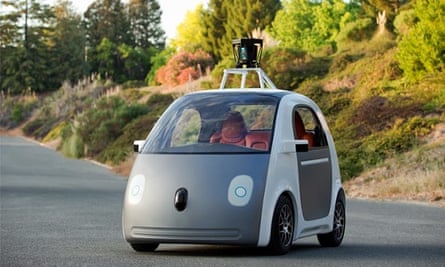
“We’re looking to start our first trial with automated shuttles with members of the public in May,” said Dr Nick Reed from the Transport Research Lab (TRL), leader of the consortium running the Greenwich trials.
He added: “You’ve got the cream of UK transport organisations distilled into these three projects and each with its own twist on what should be tested.”
The Greenwich trials – named the Gateway project – will involve self-driving shuttles being tested on closed roads and in simulation facilities. The project is led by the TRL with contributions from the Royal College of Art, Imperial College London and the University of Greenwich along with General Motors, the AA and RAC.
“These shuttles are a relatively mature technology, so our trials will be more about how to manage participants and the vehicles, to get us towards these vehicles being a real proposition for public roads,” Reed said.
Gateway will also test cars that can drop off passengers then park themselves. The vehicles will then return on command, similar to concepts shown off by Audi and other carmakers.
The Bristol trials – named the Venturer project – will involve tests investigating legal and insurance issues, as well as public reaction to self-driving cars.
The Venturer project will be led by project management group Atkins Highways & Transportation. Also involved will be the Bristol robotics lab at the University of Bristol and insurance company Axa.

The question of who pays in the event of a crash involving a driverless car is seen as one of the major barriers to letting self-driving cars loose on highways.
“This programme will help keep the UK at the forefront of this transformational technology, helping to deepen our understanding of the impact on road users and wider society and open up new opportunities for our economy and society,” said Lee Woodcock of Atkins.
The trials in Milton Keynes and Coventry will be run by a consortium named UK Autodrive. Arup is to lead this project with Jaguar Land Rover and Ford contributing. The project will focus on car-to-car and car-to-road communication and the infrastructure required.
“Our plan with the practical demonstration phases is to start testing with single vehicles on closed roads, and to build up to a point where all road users, as well as legislators, the police and insurance companies, are confident about how driverless pods and fully and partially autonomous cars can operate safely on UK roads,” said Tim Armitage, UK Autodrive project director for Arup.
The government has made clear its support of the automated vehicle industry. “The UK is a world leader in the development of driverless technology,” said business secretary Vince Cable. “This not only puts us at the forefront of this transformational technology but also opens up new opportunities for our economy and society.”
Cable said the Department for Transport (DfT) would look at the legislation needed to conduct trials on public roads, like those taking place in California and Nevada by Google and others.
Funding for driverless car development was announced last July, when Cable promised to invest £10m. A further £9m in funding was announced in George Osborne’s autumn statement.
Transport minister Claire Perry said at the time of Cable’s announcement: “Driverless cars have huge potential to transform the UK’s transport network – they could improve safety, reduce congestion and lower emissions, particularly CO2. We’re determined to ensure driverless cars can fulfil this potential which is why we’re actively reviewing regulatory obstacles to create the right framework for trialling these vehicles on UK roads.”
But others have warned of the need for caution. “Automated electric vehicles have the potential to change driving patterns because drivers won’t have to slavishly devote their time to controlling a vehicle,” said Dr Gregory Offer from the department of mechanical engineering at Imperial College London. “However, unless governments plan effectively, the potential positive impact of automated vehicles could turn into a negative.”
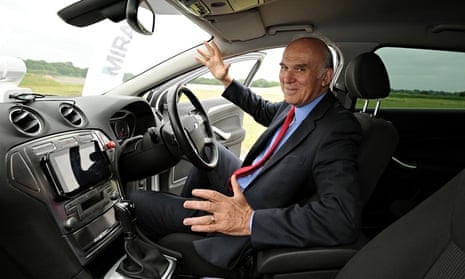
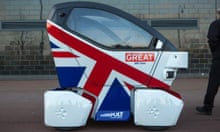
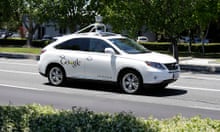


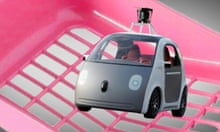
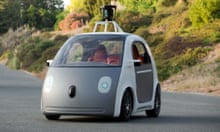
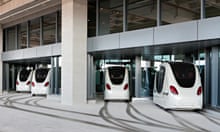
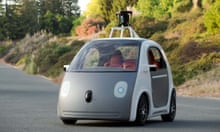

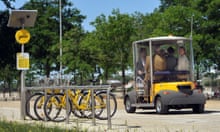
Comments (…)
Sign in or create your Guardian account to join the discussion